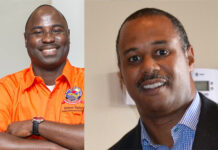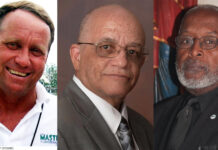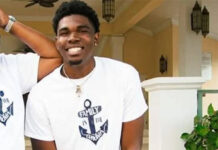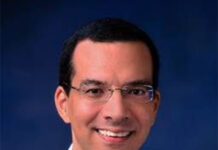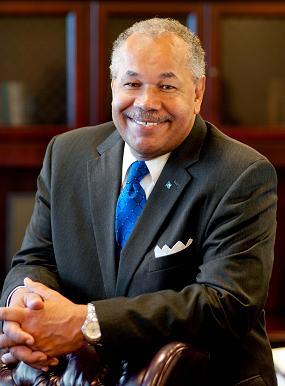
Dear Editor,
This month, October 2015, marks one year since I have been named President of The College of The Bahamas. I take this opportunity, though initiated by a recent article in one of the daily journals, to submit for publication my first Op. Ed. Article as College President. I use this as a teaching opportunity for the benefit of all; in particular, the future leaders of our country – our students.
Walter Kelly, a cartoonist, created a cartoon character, a possum named Pogo, looking out at heaps of trash as he stood on a tree limb. There was so much trash that it was impossible to cross the area. As he looked out, he said, “We have met the enemy and he is us.” This phrase has been used many times since, with various adjustments.
As I look back at this first year in office, I am reminded of this very same phrase. Therefore, in hopes of creating a teaching moment, I am appealing to all for the realization of the need to implement some practical protocols when it comes to risk reduction of any kind.
As I place these thoughts to words, I am still on the island of St. Lucia where I have been participating in planning sessions all week at the “First Caribbean Forum on Disaster Risk Reduction in Education – Implementation and Best Practices in the Caribbean Region.”
As I sat and talked with other heads of tertiary education institutions throughout the Caribbean this week, I was also thinking of what could be the biggest obstacle to The College becoming perhaps the most vibrant and internationally recognized institution of higher learning in the region. That obstacle is what seem to be our unquenchable thirst for scandal and the occasional use of unethical journalistic practices to quench that public thirst.
Let me give an example, someone with a personal agenda decides to leak a confidential in-house document to a media house. The document, designed to examine and assess all areas requiring improvement in order to make the institution a better functioning institution through implementation of best practices, is published without due process of verification or even enquiring about additional information in an effort to provide more accurate information to the readership. No effort was made to first assess “forward” and “backward” linkages to the document. What conditions existed before and after the report document and what changes took place since, were never researched prior to the blind publication of the leaked document.
In institutions of higher learning this is referred to as unethical journalism; journalism that is intentionally designed to present one picture as opposed to a more complete picture. I would take this opportunity, here, to remind all Journalism and Communications faculty members at The College of The Bahamas that Ethics and Citizenship must be taught together. Whenever we are teaching our students about journalism, we must be sure to spend a little more time on journalism ethics.
Allow me to continue. Unethical journalism is the failure to follow practical protocols. Unethical journalism is the deliberate and inappropriate publication of insufficient information followed by a series of leading questions. Questions intended for the purpose of creating the appearance of a scandal.
In the days and years ahead, The College will be engaged in significant self-assessments. In many instances, weaknesses will be brought to light. Identifying these weaknesses is necessary prior to exploring and implementing best practices. This kind of institutional self-study is a requirement for the kind of international accreditation for which the soon-to-be University will be seeking.
No doubt, as the institution re-examines existing and past policies and practices, some will be viewed as weak and even inadequate. This kind of acknowledgment is necessary for continuous improvement. These internal documents are not intended for public consumption. They are intended for the purpose of institutional continuous improvements.
The recently leaked extensive and unusually candid 2011 Audit Management Letter from Baker Tilley and Gomez was intended to help the institution. It was not intended to be used for the creation of a scandalous story.
As President of The College, soon to be University, I ask one small consideration from all media houses. Please appoint one reporter/journalist to cover education; or, in this particular instance, to cover higher education. The future University will be able to develop relationships with these reporters and will gladly share complete details of documents or any other events occurring on the campus or pertaining to the growth and development of our University.
I ask that we move away from the practice of sticking a microphone in someone’s face and asking for off-the-cuff statements. Let us discourage unethical journalism and hold each other accountable as we build our country and our University. Thank you, in advance, for publishing this first Op. Ed. Article. We, at The College, are indeed looking forward to working closely with you and providing the most transparent and accurate information for your readership.
Signed,
Rodney D. Smith, Ed.D President, The College of The Bahamas


